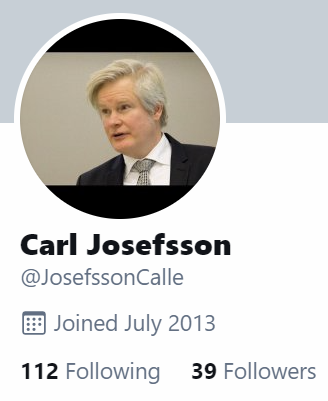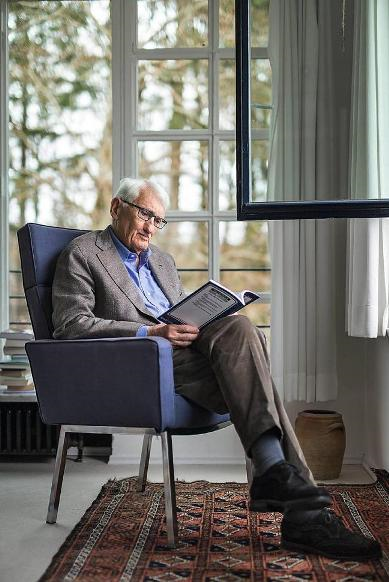

"Calle" Josefsson's tweeting career came to an abrupt halt in September 2016.
As we saw in the last part, during his time as a Swedish judge, Josefsson participated quite enthusiastically in public discussions, including debates about the role of the judiciary in a democratic social order.
"Whatever directions he may have received from his prospective EPOnian overlords, it is clear that "Calle" took a decision that it would be in his own interest to dial down his Habermasian dialectics and critiques of "legal anarchy"."However, he ceased "tweeting" abruptly in September 2016 and his Twitter account has remained inactive since then.
It might be nothing more than a coincidence, but the termination of his twittering activities occurred around the same time that he was being groomed for his future as "President of the Boards of Appeal" role at the EPO.
It's not clear whether there was a causal connection between these two events. But it's quite possible that Josefsson was given to understand by Battistelli and Kongstad that if he had aspirations to joining the EPO's senior management "mafia" he would have to curb his enthusiasm for open and transparent public debate about the role of the judiciary in a system based on the "rule of law".
Whatever directions he may have received from his prospective EPOnian overlords, it is clear that "Calle" took a decision that it would be in his own interest to dial down his Habermasian dialectics and critiques of "legal anarchy".
Since he joined the EPO as "President of the Boards of Appeal", Josefsson has kept his head down and has studiously avoided getting involved in any "political" discussions about the EPO's glaring governance deficits.

What would the philosopher Habermas make of Josefsson's collusion with the EPO's "legal anarchy"?
"One wonders what his philosophical mentor Jürgen Habermas would make of this strange metamorphosis and how Habermas would judge Josefsson's silent and opportunistic collusion with the "legal anarchy" that prevails at EPOnia."It's hard to believe that, during his student days in Sweden, the youthful "Calle" had something of a reputation as a radical and was associated with a group of libertarian left-wing student "intellectuals" who went on to become prominent figures in Swedish public life.
In the next part we will examine this little-known chapter in his personal biography. ⬆